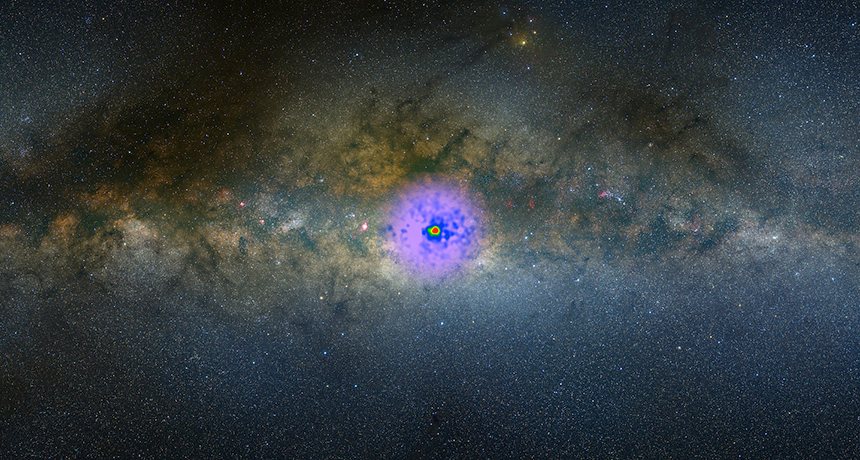Hopes dim that gamma rays can reveal dark matter
The distribution of stars in the Milky Way points to a more mundane source of the excess light

GALACTIC GLARE Dark matter probably doesn’t generate an excess of gamma rays coming from the center of the Milky Way, shown here superimposed over an image of the galaxy.
T. Linden/Univ. of Chicago, A. Mellinger/Central Mich. Univ., NASA